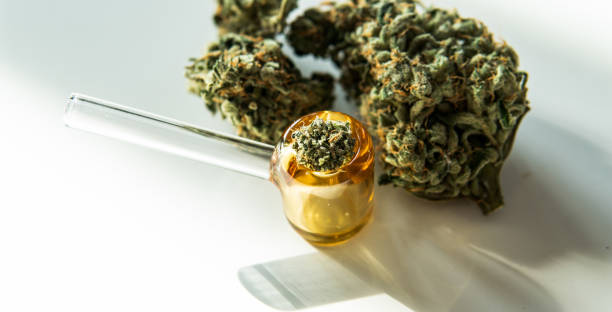Tetrahydrocannabinolic acid (THCA) stands out in the cannabis plant for being a non-intoxicating compound. Distinct from THC (tetrahydrocannabinol), the well-known psychoactive ingredient in marijuana, THCA lacks the ability to induce the euphoric “high.” However, its significance lies in its transformation into THC when heated or exposed to light, a chemical reaction known as decarboxylation, which activates cannabis’s psychoactive effects.
Emerging Benefits of THCA
Though still in the preliminary stages of research, THCA is beginning to show potential in various therapeutic domains:
– Anti-inflammatory effects: Early studies are hinting at THCA’s capability to mitigate inflammation, a boon for individuals suffering from conditions like arthritis and inflammatory bowel disease.
– Neuroprotection: There’s growing interest in THCA’s ability to safeguard brain cells, a promising avenue for addressing neurodegenerative diseases.
– Regulating nausea and appetite: Echoing THC’s effects, THCA might offer relief from nausea and vomiting, besides possibly enhancing appetite. This could be particularly beneficial for chemotherapy patients or those with eating disorders.
– Pain relief: There’s potential for THCA to serve as a pain reliever, adding another dimension to its therapeutic profile.
It’s crucial to underline that comprehensive studies are necessary to fully validate these benefits and establish proper dosage guidelines.
THCA’s Legal Quandary
THCA occupies a complicated niche within legal frameworks, residing in a nebulous zone:
– 2018 Farm Bill implications: This legislation made hemp lawful, defining it as cannabis with under 0.3% delta-9 THC. Given THCA’s role as a precursor to THC (but not THC itself), it fits this criterion when sourced from hemp.
– The Decarboxylation Dilemma: Although THCA’s raw form is federally legal, its conversion to THC through decarboxylation—which can happen naturally over time or with applied heat—might push the THC content beyond the legal limit of 0.3%.
– State-by-state stance: The approach to regulating THCA varies significantly across states. Some have outright banned THCA products, others have imposed specific restrictions, and many lack clear guidelines, often focusing solely on delta-9 THC levels.
Guidance Through the Gray Areas
The regulatory gaps surrounding THCA create a challenging landscape for consumers, manufacturers, and law enforcement alike. Considerations for navigating this terrain include:
– Keeping abreast of changes: With state laws in flux, staying informed about your local regulations is crucial before engaging with THCA products.
– Product sourcing: Prioritize purchasing hemp-derived THCA products that have undergone laboratory testing to confirm their cannabinoid makeup. For those interested in THCA flower, Crowntown Cannabis offers a selection of products, providing a straightforward option for exploring the benefits of THCA.
– Method of consumption: Recognize that using THCA products in ways that involve heating (like smoking, vaping, or cooking) will likely lead to THCA converting to THC.
Looking Ahead at THCA
THCA’s potential health benefits and its distinct chemical nature underscore the importance of further scientific inquiry. As research advances, a more defined regulatory landscape is anticipated to evolve, clarifying THCA’s legal standing. Until then, informed and cautious exploration of THCA remains advisable for interested parties, with Crowntown Cannabis serving as a resource for those seeking to purchase THCA flower.
Disclaimer: This content is purely informational and should not be seen as medical advice. Always consult a healthcare provider before using THCA products.


